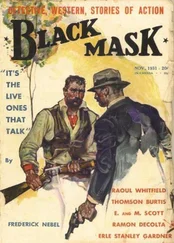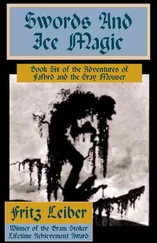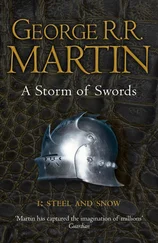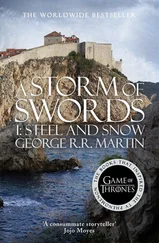They had no choice but to undertake the lethal task, so much had been made clear to them, not least by the False Prince’s wizards, whose spokesman was a man in unfriendly middle age. “You are already under Cashloria’s geas, ” he had told them. “It will avail you nothing to essay escape. You must travel to the place of dread, there enter in, and do whatever you’re able to retrieve the Garment of Princedom—which is otherwise known as The Robe Which Wins All Wars .”
At this news, Zire had yawned convulsively and Bretilf’s hungry stomach grumbled. They had been from the start well aware some coercive spell was on them. They were its captives until either they had gained the trophy—or died, “horribly,” in the attempt.
During the breakfast that was eventually served them, and that might have been enjoyable, including platters of fresh-baked shrimp, clam, and prawn, good ham, and eggs curdled with white wine, the indefatigable wizard informed them of all the conditions of their unwanted and unavoidable quest.
The original thief of the Winning Robe was allegedly a mischievously malignant elemental of the forest. It had next created a bizarre castle in which to hide the Robe, ringing it prudently with a labyrinth, unknown yet frightful safeguards, and energizing all with a sorcery so strident none had ever survived it. More than fifty men, all intelligent, cunning, and courageous, and well-versed in the use of stealth and weaponry, had been sent to the castle. And all had returned—but in disturbingly dead states: headless, footless, heartless; lurid with alien venom, rigid with stings of weird sort, skinned, scalped, or dissected. This multitude of squeam-making ends were duly attributed to the prince himself, in order the citizens might fear him and be kept down. “Hence the tales of scorpions and snakes,” Zire had muttered.
“It seems a perfect genius is needed,” said Bretilf, “if mere cleverness, cunning, and all other skills are no use.”
“Well, whatever we have to our credit, there being two of us, it’s doubled,” hazarded Zire.
They were awarded two horses, a bay gelding for Bretilf, Zire’s horse being his own gray, nicely reshod. Both animals were well fed, saddled, and burnished.
Now on the bridge over the Ca, the farther bank having become the nearer one, Zire abruptly drew rein. Bretilf copied him. “What?”
“Let us,” said Zire, “see if we’re able, after all, to turn back and make off.”
Bretilf looked once over his shoulder. “Each of us is aware he can’t. The geas prevents it. Or else we would still be escorted. We can only go forward to the goal of the castle. We were told we did not even need a map, the compulsion on us being so strong we can only follow the compulsory direction.
“Perhaps, however,” suggested Zire, “the horses can carry us in the opposite one, despite whatever spell binds us .”
They turned the horses’ heads. Grimly, Zire and Bretilf faced back down the bridge to the city, gripped the reins, and kicked both mounts lightly in the side.
The horses instantly reared as if confronted by flailing flames or slavering demons. Jumping about in a shriek of metal hooves on stone paving, they reversed themselves with such enthusiasm their riders were nearly unseated. Both mounts then tore the last quarter of a mile along the bridge in the unwanted direction, and plunged off into the forest beyond.
Only with great awkwardness and noise were they persuaded to calm down and stop. They were deep into the trees—bridge, river, and city out of sight. Bretilf and Zire scowled about at the red-leafed gloom, to which they were so well matched.
“So much for that, then.”
The morning waxed through the coppery forest canopy toward noon. Glumly, Zire and Bretilf rode along the track the geas had selected. Birds sang, and once a deer broke across the path. A pair of squirrels mocked them from a tall black pine.
Not long after, something appeared ahead at the roadside. At first, both men took it for a marker of some sort. It stayed completely still. But, presently, Zire exclaimed, “Look there. It’s a young woman. Why, it’s the inn-girl from the Plucked Dragon, who was so full of warnings.”
Bretilf added, “I seem to know her, too. Either she served me at the first inn, or the second.”
The girl, drably clad, and with a tattered white shawl over hair greasy from constant nearness to roast meat, just then raised her hand—not in greeting, but to beckon.
“Perhaps she was thrown out of work because of us,” said Zire.
“I can spare her a coin,” said Bretilf.
The riders reached the girl and halted. She gazed into their faces with dull eyes. She spoke:
“Alas! The False Prince has ensorcelled and sent you to your dooms. Oh, you’ll be done for like all the others. The Robe That Wins is untakable. Poor souls, poor lost souls!”
“Exactly,” said Zire.
Bretilf remarked, “But it’s kind of you to wish us luck so encouragingly.”
The girl took no notice either of pragmatics or sarcasm. Solemnly, she cried, in a high, self-important voice, “My name is Loë, and I am of no account. But seek the house of Ysmarel Star that lies along this very track. There only may you find assistance.”
“What is Ysmarel Star?”
“Seek the house and learn!” melodramatically declaimed the rather aggravating Loë. “You can hardly miss the mansion. White roses crowd the walls and white owls flit around it, while a huge diamond star hangs low above.”
“Not modestly self-effacing then, as are you,” said Zire.
“I am nothing. I am only Loë .”
And the girl ran suddenly off the track and in among the copper-gold patchwork of the trees. Bretilf and Zire stared after her thoughtfully.
“It seemed to me…” Bretilf murmured after a second or so.
“…also to me…” agreed Zire.
“…that where the shadow of that cedar falls…”
“…girl ceased to be girl…”
“and became instead…?”
“…a weasel,” concluded Zire. “Perhaps,” he added, “we hallucinate from hunger. Let’s enjoy a brief rest, and dine on the provisions in the saddlebags.”
During the afternoon, the autumnal forest changed from metals to wines, and so to lilacs. That evening the track, now very overgrown, and interrupted by the strong claws of neighboring trees, meandered out into a series of clearings. Here dusk filtered, littered by tiny bats.
A sweep of land was rising upward on their left, the trees thinly scattered about on it. Then a hill was to be seen, clear on the mauve-glowing sky. One star had risen there of unusual size and brilliance, and beneath lay a dark, rambling house, here and there pierced by the needles of lamps.
“Ysmarel’s mansion?”
“So it seems,” affirmed Zire.
“Do we visit?”
“Why not? The track winds close, and the geas allows intervals.”
“And anyway, to the doomed,” Bretilf appended, “all delays are good .”
The gray and bay climbed the hill.
High stone barricades appeared, smothered with moon-pale flowers, whose scent seemed enhanced by darkness. Above, six or seven gigantic bats flew about. But the low-strung star illuminated their wings, which were white. They were owls.
Purple glass and glass like saffron was in the lighted windows. A bell hung over the gate.
The two men observed the bell, but before they could decide to ring it, it pealingly rang of itself. At this, the owls descended together, and perched along the tops of the walls, looking at Zire and Bretilf through the stained glass of their eyes.
Some moments later, the gate swung wide, and inside was framed a dark garden, full of white roses that caught the starshine and ghostly shone. About twenty paces on, a broad door stood open and, even as they watched, soft lamps bloomed there. It was all most enticing. So much so that neither man advanced. They sat their horses, and the owls sat on the walls, and not a sound was to be heard, as if time had grown cautious, too, and stood still.
Читать дальше











